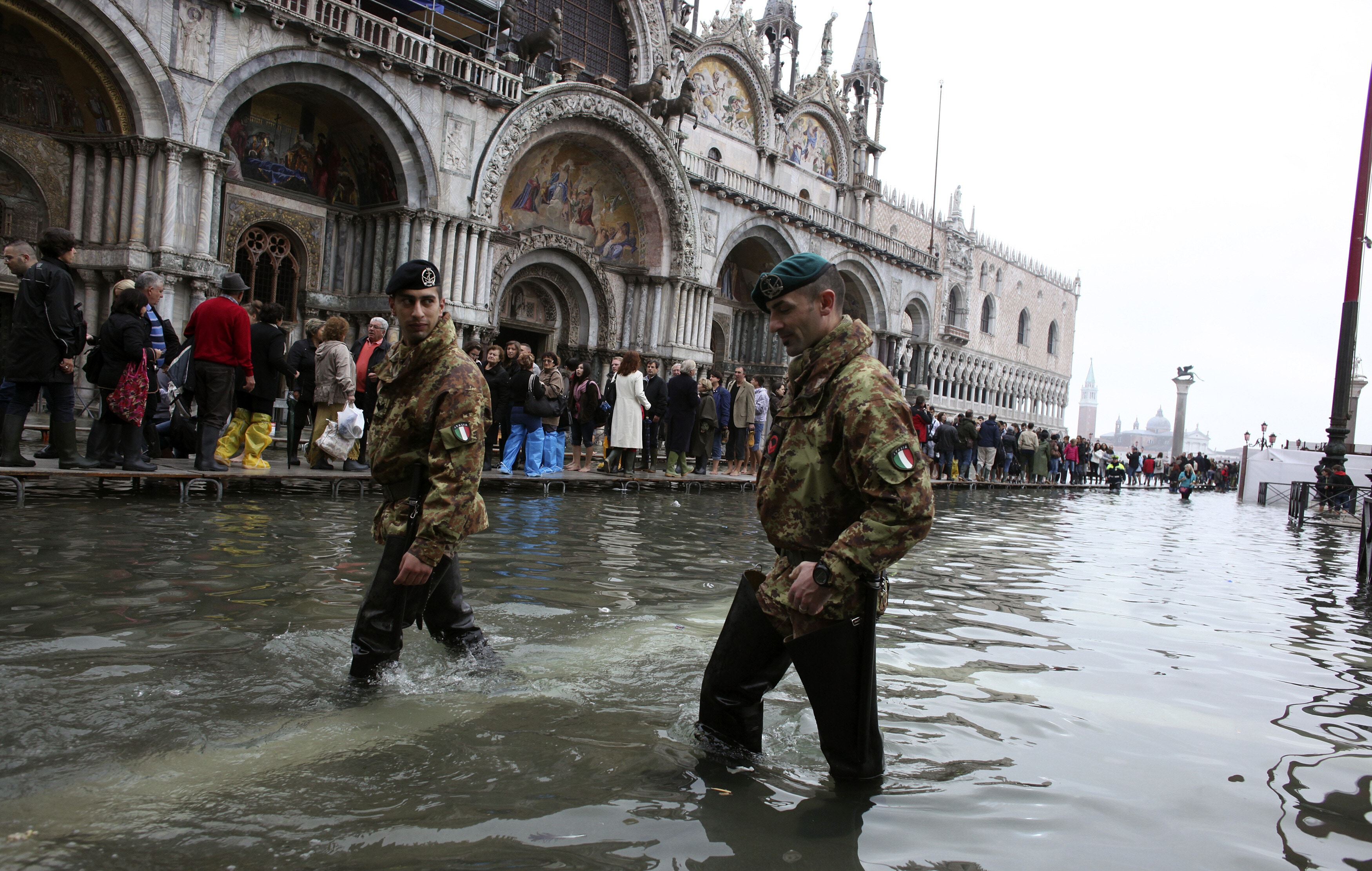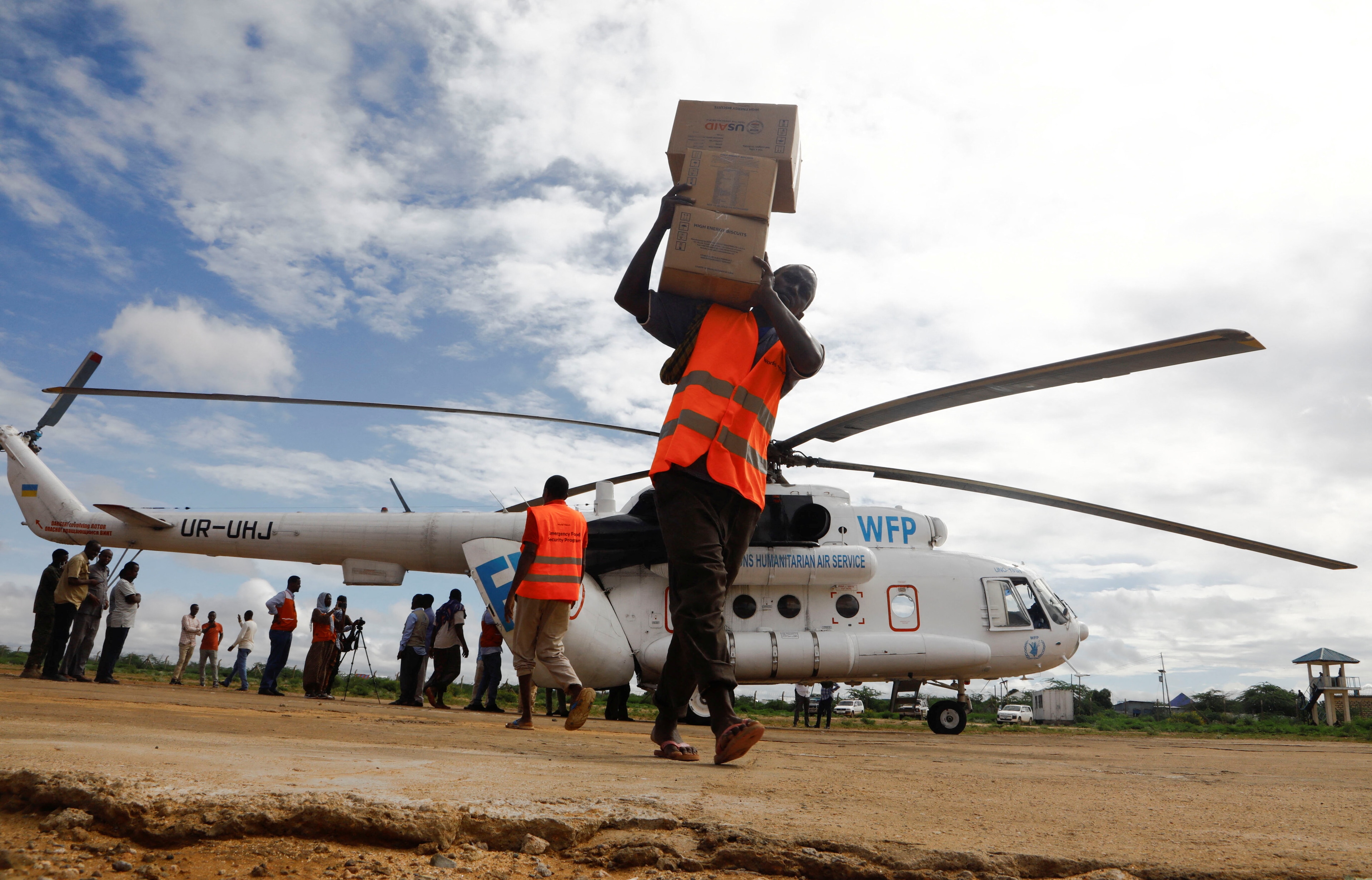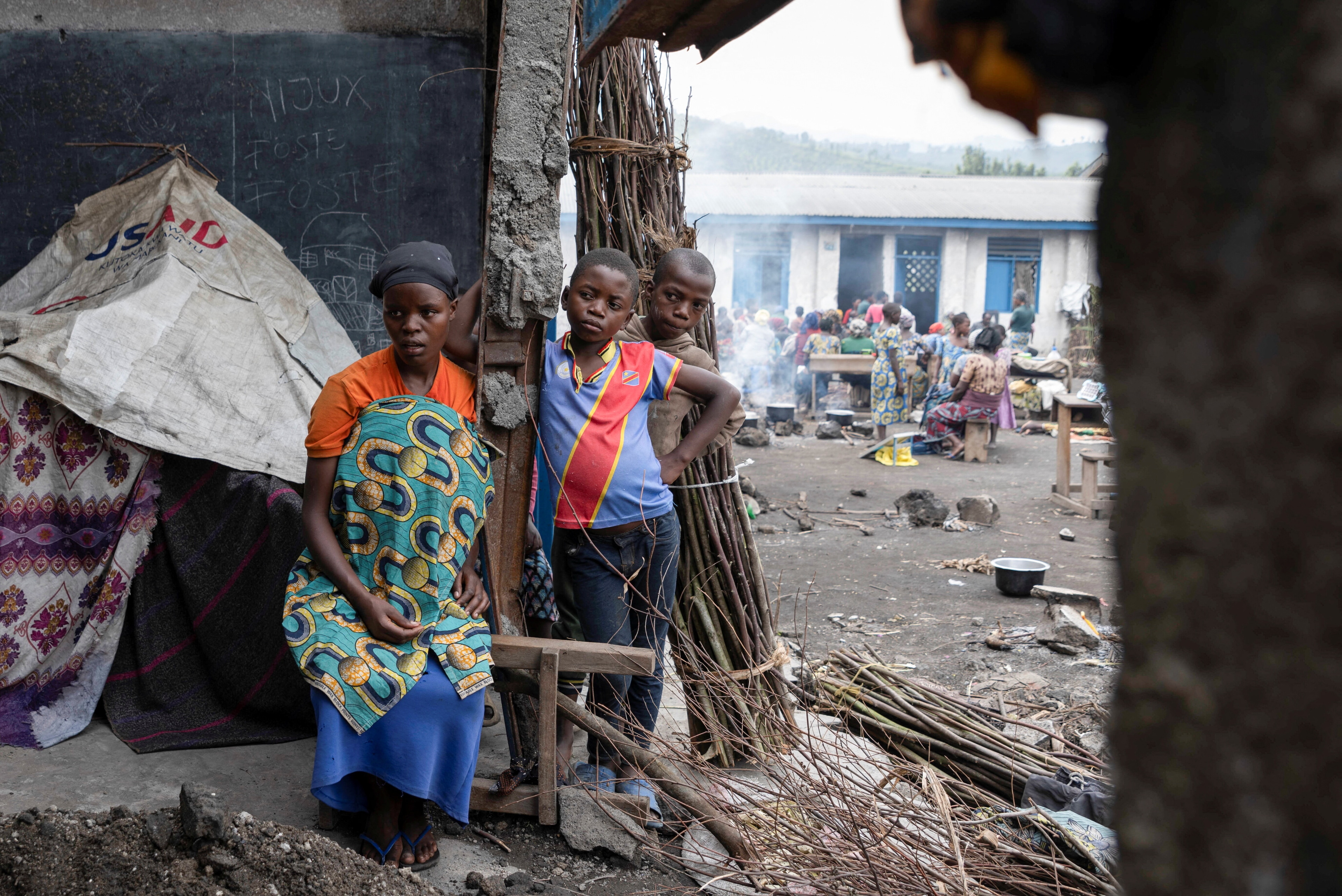How should the world respond to the Syrian refugee crisis?

Stay up to date:
Middle East and North Africa
Syrian, Palestinian and Lebanese refugee students are now eating a healthy lunch at Rawdat Al Toufoula School in south Beirut. “For some of them, this is their main meal for the day,” their teacher Linda says. “They come from poor families. They hardly have any money. They can’t provide this much food.” She said attendance is up because of the lunch, and her classroom of kindergarten-aged children is learning better now, too. “The food is filling them up with energy so they can concentrate. When they’re hungry they can’t really pay attention.”
On the surface, this school lunch programme resembles most refugee aid programmes: it supports critical areas of youth development, health and education, and extends benefits to vulnerable members of the host community. But this programme, funded by the Crook Foundation and led by Mercy Corps, has a unique design and is having an impact that extends far beyond the school walls.
Much of the food is sourced from women-led agricultural cooperatives. These entrepreneurs receive income from the sale of their products, as well as in-kind assistance, technical and market support from our local partner, ShareQ, to link their products to established retail, wholesale outlets and caterers. This linkage has incentivized the adoption of new marketing, operational and management processes and thus far provided meaningful employment for Lebanese and Syrian women, supporting local economies and providing host community dividends.
We also found that providing one meal a day to children in schools has a profound positive impact on the livelihoods of the chronically poor households from which they come. Families were able to reallocate 10-15% of their monthly income, or about $20-$25 per child, for basic needs and services, while improving school attendance rates.
Move beyond traditional humanitarian aid and development
The international community has been wrestling with the question of how to operationalize a crisis response that integrates traditional linear humanitarian and development programmes, agencies and funding schemes. Mercy Corps does not have all the solutions, but we believe it is possible for the international community to respond differently to the Syrian refugee crisis. New approaches can transcend the traditional humanitarian and development models, experiment with and leverage market opportunities, and present even greater value to host communities.
Mercy Corps’ strategy is consistent with the aspirations of the Regional, Refugee and Resilience Plan in Response to the Syria Crisis (3RP). As a country-driven regional plan, 3RP addresses refugee protection and humanitarian needs while building the resilience of impacted communities, and recognizing the centrality of national resilience and stabilization plans to strengthen the capacity of national delivery systems.
Both Lebanon and Jordan have developed strong national resilience plans to address the divide between humanitarian and development needs. The Lebanon Crisis Response Plan aims to support Syria’s displaced families by supporting the local economy, investing in service and welfare systems, creating new jobs, mitigating conflicts and seeking cost-effective models for delivering assistance in a challenging financial environment. In Jordan, the National Resilience Plan focuses on WASH (water, sanitation and hygiene), energy, education, social protection, municipal services, livelihoods, housing and health, with the objective of mitigating the effects of the Syrian crisis on Jordan and Jordanian host communities.
As demonstrated in our work in Syria, donors can drive change by incentivizing partnerships and alignment between private, public and civil society actors, and encouraging them to share lessons. Change requires flexible, creative investments in programmes that cut across basic needs for refugees and host community support, and encourage innovation through models that test, adapt, scale and replicate. Some donors, such as DFID, USAID and the European Commission through its Madad Regional Trust Fund, have been supportive and farsighted in their smart investments in these initiatives, but more can be done. International financial institutions like the World Bank need to work with host nations to solve the long-term problems they face.
Creative public-private partnerships are vital, as illustrated by Mercy Corps’ global programming with Xylem, the global water technology company. Together with Xylem, we are addressing the most challenging water problems that would otherwise be too large and complex to solve alone. This includes meeting the water and sanitation needs of hundreds of thousands of Syrian refugees in Jordan, the fourth driest country in the world. The cornerstone of our work in Jordan has been the development of deep water wells that provide clean water to tens of thousands of families at the Zaatari refugee camp. With Xylem’s financial support and expertise, we are able to think – and act – on a larger scale.
We would welcome further discussion as part of a multistakeholder body with international donors, local authorities and the private sector. Engaging the private sector is key to sustainably easing economic and resource strains in refugee communities while building a foundation for new job creation and investments.
The World Economic Forum on the Middle East and North Africa 2015 takes place at the Dead Sea, Jordan, from 21-23 May.
Author: Nigel Pont is Middle East Regional Program Director at Mercy Corps
Image: A Kurdish refugee child from the Syrian town of Kobani walks in the rain in a camp in the southeastern town of Suruc, Sanliurfa province, October 16, 2014. REUTERS/Kai Pfaffenbach
Don't miss any update on this topic
Create a free account and access your personalized content collection with our latest publications and analyses.
License and Republishing
World Economic Forum articles may be republished in accordance with the Creative Commons Attribution-NonCommercial-NoDerivatives 4.0 International Public License, and in accordance with our Terms of Use.
The views expressed in this article are those of the author alone and not the World Economic Forum.
Forum Stories newsletter
Bringing you weekly curated insights and analysis on the global issues that matter.
More on Resilience, Peace and SecuritySee all
Charles Bourgault and Sarah Moin
August 19, 2025
Florian Krampe
July 31, 2025
Naoko Tochibayashi
July 28, 2025
Vanina Farber
July 21, 2025
Robert Piper
July 17, 2025
Resilience roundtable: How emerging markets can thrive amid geopolitical and geoeconomic uncertainty
Børge Brende, Bob Sternfels, Mohammed Al-Jadaan and Odile Françoise Renaud-Basso
July 9, 2025





